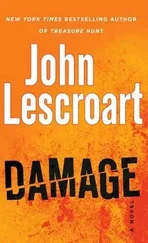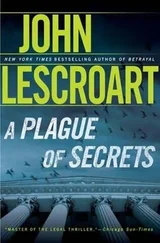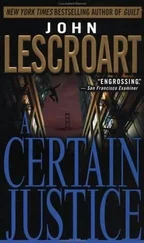John Lescroart - Son of Holmes
Здесь есть возможность читать онлайн «John Lescroart - Son of Holmes» весь текст электронной книги совершенно бесплатно (целиком полную версию без сокращений). В некоторых случаях можно слушать аудио, скачать через торрент в формате fb2 и присутствует краткое содержание. Год выпуска: 2003, ISBN: 2003, Издательство: New American Library, Жанр: Старинная литература, на русском языке. Описание произведения, (предисловие) а так же отзывы посетителей доступны на портале библиотеки ЛибКат.
- Название:Son of Holmes
- Автор:
- Издательство:New American Library
- Жанр:
- Год:2003
- ISBN:9780451208750
- Рейтинг книги:4 / 5. Голосов: 1
-
Избранное:Добавить в избранное
- Отзывы:
-
Ваша оценка:
- 80
- 1
- 2
- 3
- 4
- 5
Son of Holmes: краткое содержание, описание и аннотация
Предлагаем к чтению аннотацию, описание, краткое содержание или предисловие (зависит от того, что написал сам автор книги «Son of Holmes»). Если вы не нашли необходимую информацию о книге — напишите в комментариях, мы постараемся отыскать её.
Son of Holmes — читать онлайн бесплатно полную книгу (весь текст) целиком
Ниже представлен текст книги, разбитый по страницам. Система сохранения места последней прочитанной страницы, позволяет с удобством читать онлайн бесплатно книгу «Son of Holmes», без необходимости каждый раз заново искать на чём Вы остановились. Поставьте закладку, и сможете в любой момент перейти на страницу, на которой закончили чтение.
Интервал:
Закладка:
A dead-end street brought me up short. I was just as content to be lost—the physical disorientation matched my mental turmoil. I was losing faith in the world I lived in—a world where my friends were not as they seemed, where love and trust might be bargaining chips, and duplicity the coin of the realm.
Everyone . . .
I could not have met Georges more innocuously. Late last summer, just after I’d come down here, I was returning from a bit of business in St. Etienne in my motorcar when I came upon a well-dressed limping figure hitchhiking on the roadway. New to the area, Georges had miscalculated the distances between a few of his sales calls in St. Etienne and so had missed his train back to Valence. During the drive, we struck up a fascinating discussion on the question of reincarnation, and I sensed that he would fit in perfectly among my beer guests. And so it had proved.
And yet there were coincidences that a mind more suspicious than my own might not have overlooked. That first Wednesday meeting with Georges in attendance was also Marcel’s first day back in the area. In other words, it was within two weeks of our first operative’s death. And that of course meant that Georges’s arrival in Valence occurred within days of that “accident.” Further, of all of our number, he had the least history. I had known of, or had references to account for, each of my other friends, each of the other suspects.
Finally, and more subjectively, I have had a great deal of experience with members of my profession, and if there can be said to be a “type” of mind in the field, Georges’s most neatly fit that category—heavily reliant on facts, possessed of enough originality to deduce from those facts (Marcel’s glaring flaw and Lupa’s forte), plus a certain glibness, a way of getting by on the surface of events while chaos reigns on the operative level.
The psychological babble was fine in its place, and yet the fact remained that Georges had not even been in the same room when Marcel had taken his last draft. And no service in the world would hire a man with Georges’s limp—it was simply unheard of.
A recognizable square loomed ahead of me in the drizzle, and I found myself suddenly almost too dispirited to keep moving toward it. What was the point of going home? What, indeed, was home? Another hollow concept such as loyalty, duty, honor—all fine words to fight and die over, but nothing to take too seriously.
But the old discipline directed my footsteps just as my training led my thoughts back to the issue. The stakes here were nothing less than survival, and sentiment must be viewed only as a dangerous luxury, an enemy as deadly as any I would ever face.
Everyone . . .
How could Fritz have lived in my house for a year without causing me a moment of suspicion? And yet who was more ideally suited to keep tabs on my movements and report on them? No one had had a better opportunity to place poison in Marcel’s bottle, except of course Lupa, who had been sitting in that seat. But my trust in Lupa had proven itself well grounded. Or had it? Perhaps he’d kept me alive last night for another, future purpose. Perhaps in some other game, I was a bishop and Marcel a quickly expendable pawn—perhaps and maybe and again perhaps. My mind was beginning to reel with uncertainties, with possibilities.
Everyone . . .
And even Tania . . .
No! Not Tania! Not the only woman I had ever loved. It was unthinkable. Even if it killed me, I would not suspect her. I shook my head, trying as best I could to purge the poisonous thought . . . ... and looked up to find myself in the middle of the square, still confused and lonelier than I had ever felt before.

The rain became fierce, and again I found myself soaked. In no mood to continue an already disagreeable walk, I hired a carriage back to my home. Fritz greeted me at the door with undisguised concern, tempered with reproval.
“Are you well, sir?”
“Damn it, Fritz, no. No, I’m not well. I’m drenched, my clothes are ruined for the second time, I’m tired, and my oldest friend has been murdered in my house. No, I’m not well at all.”
He stood back and silently took my clothes.
“I’m sorry to snap,” I said, “but it has been a trying time.”
“Monsieur Lupa came by this morning and told me you were in good hands. Madame Chessal went home after breakfast. Would you like some tea or brandy?”
He handed me my robe, and I went into the front room to sit before the fire, where I brooded for a while about my age until Fritz came back with tea laced with brandy. After one cup I fell off to sleep.
Fritz woke me again when it was already dark, served me a small meal of coddled eggs with sherry and black butter, and suggested I retire, which I did.
5
Ironically, but predictably, the sun blazed forth on Friday morning for Marcel’s funeral, and found me well rested. Fritz always rose at dawn and, when the weather permitted, breakfasted by himself in the arbor. Since I was rarely awake by then, he justly considered this his time, and I was loath to disturb him, so I poured myself a cup of espresso before walking out. I was ashamed of myself for the way I’d acted the day before. These days at home had weakened me. I resolved to shake myself out of this softness.
I walked to the arbor in my robe and bare feet, enjoying the feel of the wet grass. Fritz sat on a cushion that he’d brought out for the stone bench, eating a brioche with some ripe Brie and drinking his coffee. Already, at seven o’clock, the chill had gone from the air. The house and arbor had a striking, newly washed quality. A slight mist rose from the shingles of the roof.
“Good morning, Fritz. Don’t get up. No muffins for me. I’ll just be having coffee in the mornings for a while.”
We sat for a while without speaking. The stream murmured peacefully. At such a time it was hard to imagine the trenches, the carnage, a Europe—perhaps soon a world—at war. Yet it would be fatal to be lulled, to allow oneself to forget.
Fritz pulled me from my reverie after he’d drained his cup. “You’re going to the funeral?”
“Yes, of course.”
“Madame Chessal, then, asks if you’ll pick her up on the way.”
In a half hour, I had dressed and gone to the old servants’ quarters, where I kept my automobile, a Ford from America that I’d been allowed to keep after mobilization, though there’d been a substantial and very local “tax” for the privilege. The car started without any problem, and within minutes I pulled up to Tania’s house. She sat out on the front patio of the long, light blue structure, nibbling halfheartedly at her croissant.
“Good morning,” I said.
She stood quickly and came over to embrace me. She looked tired.
“But you,” she said, “where did you go that Monsieur Lupa wound up taking care of you? Are you all right?”
I patted her shoulder. “I’m fine. I think I just needed to forget, or perhaps to remember. At any rate, to lay Marcel to rest. I’m perfectly well now. Come, are you ready? You don’t look as though you’ve had such a wonderful night yourself.”
She took my arm, leaning a fragrant head for a moment against my shoulder. She sighed. “Sometimes we’re so alike it’s frightening. I couldn’t stop thinking about poor Marcel. Last night I’m afraid I drank rather too much wine. Danielle had to put me to bed.”
“Fritz did the same for me.”
We got into the car and drove to the cemetery. The service wasn’t due to begin until ten o’clock, so we had nearly two hours to walk through the surrounding countryside and compose ourselves. I decided that my suspicions about Tania on the day before had been ridiculous, but resolved not to say anything unnecessary to anyone until this mess had been cleared up.
Читать дальшеИнтервал:
Закладка:
Похожие книги на «Son of Holmes»
Представляем Вашему вниманию похожие книги на «Son of Holmes» списком для выбора. Мы отобрали схожую по названию и смыслу литературу в надежде предоставить читателям больше вариантов отыскать новые, интересные, ещё непрочитанные произведения.
Обсуждение, отзывы о книге «Son of Holmes» и просто собственные мнения читателей. Оставьте ваши комментарии, напишите, что Вы думаете о произведении, его смысле или главных героях. Укажите что конкретно понравилось, а что нет, и почему Вы так считаете.












